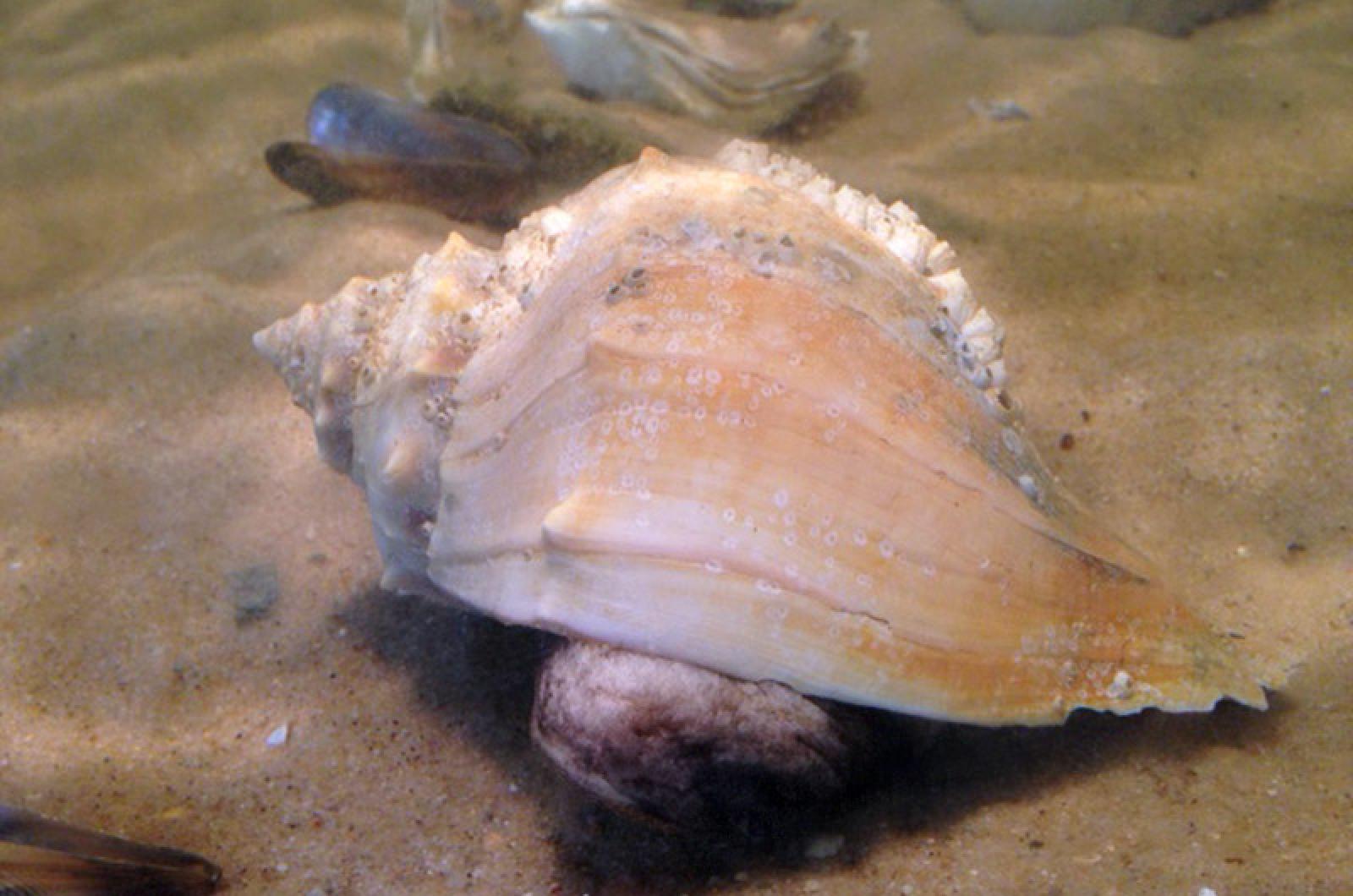Giant snails (and a man that fished them) dominate my psyche and sadden my heart.
Last week was a tragic time on the Island. Fisherman, father, husband, hockey player and all around good guy Luke Gurney was lost to the sea in a tragic accident aboard his boat. You did not have to know him well to appreciate his kindness, enthusiasm for life and huge, engaging smile. ven a brief encounter was memorable.
I was lucky to see Luke a few days before he died. He had come to Felix Neck to bring a few whelks for us to put into our marine life tank and thoughtfully promised he would get more critters for kids and adults to learn about and enjoy on one of his fishing trips. He then went on to teach me to identify and sex all of the juvenile fish in the tank.
Every time I see a fish he taught me about or one of his whelks extrude its globular body outside of its shell and climb up the side of the tank, I am reminded of Luke and his goodness. A proverb states that the snail leaves its trail wherever it goes. This fisherman of snails left a trail of friends and memories across the Island and throughout his life.
It will be impossible to ever look at a whelk without thinking of Luke. Though his job was to harvest them, he seemed to have a respect and admiration for whelks and other creatures of the sea. As Mahatma Gandhi believed: “The good man is a friend of all living things.”
Whelks truly are fascinating and mystical animals. These large snails are sometimes called conch locally, but marine biologists will differentiate true conchs by their diets (vegetarian) and location (southern waters). Our two common local species, the knobbed and channeled whelks, prefer our northern waters and are carnivorous.
On the magical side, consider what American actor and filmmaker Joseph Gordon-Levitt observed about the circular quality of this gastropod: “The spiral in a snail’s shell is the same mathematically as the spiral in the Milky Way galaxy, and it’s also the same mathematically as the spirals in our DNA. It’s the same ratio that you’ll find in very basic music that transcends cultures all over the world.”
This, too, is the same “golden” spiral of a pinecone, seed arrangement in a sunflower and many other natural forms.
A favorite part of this gastropod is its operculum or trap door that closes it off to the outside world. And its empty shell is a treasure found on Island beaches, one that is impossible not to bring up to your ear to listen for the sound of the ocean.
Robert Wood was an American physicist, if not an American poet, who stated the obvious when he noted:
“. . . if you listen to the shell, In which the whelk is said to dwell, And hear a roar without a doubt, It indicates that the whelk is out.”
The word whelk comes from the Germanic root, weluka, meaning to turn or revolve and describes that circular quality of the whelk’s shell, and perhaps the circle of friends and family that revolved around Luke Gurney. He was a friend to many and will be deeply missed.
Suzan Bellincampi is director of the Felix Neck Wildlife Sanctuary in Edgartown, and author of Martha’s Vineyard: A Field Guide to Island Nature.






Comments (3)
Comments
Comment policy »